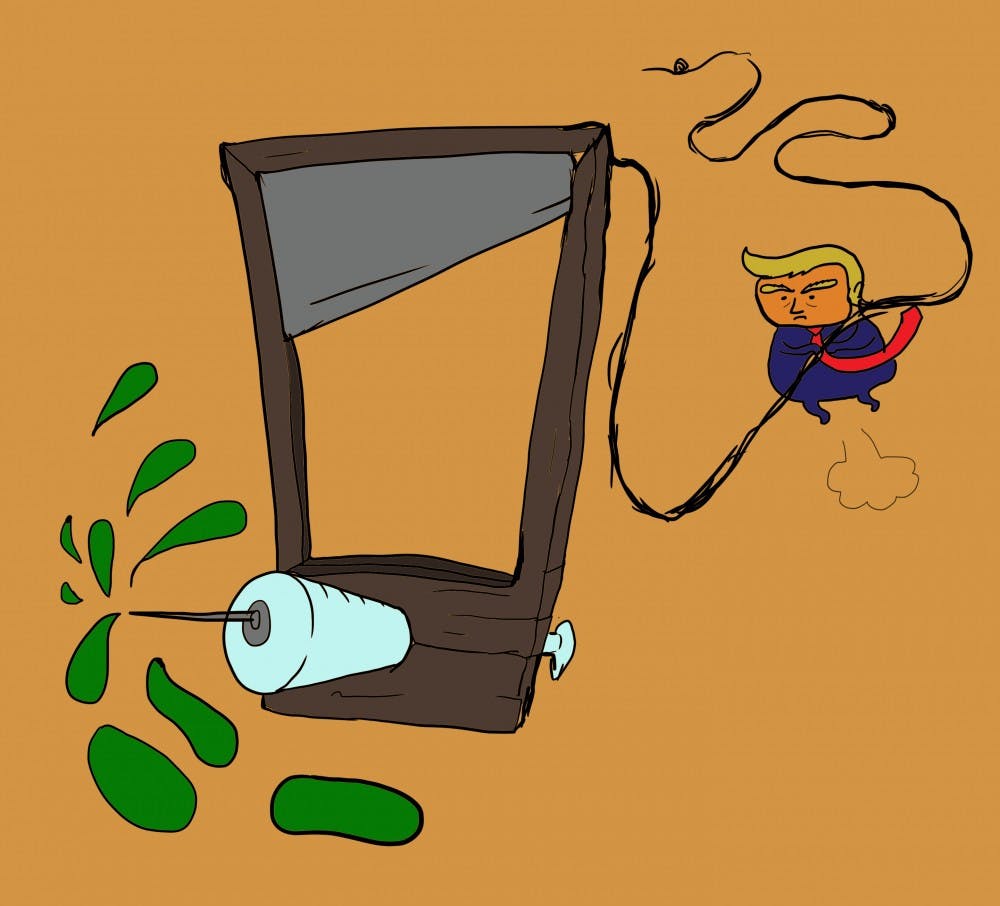President Trump has introduced a plan to fight the opioid epidemic imposing the death penalty on drug traffickers.
This plan is both unethical and an inefficient way to stop opioid use.
Above all else, the opioid epidemic is a public health crisis. Therefore, the criminal justice system should not be the first method to help solve it.
According to the National Institute of Drug Abuse, there were 35,000 overdose deaths involving opioid drugs in 2015 and more than 600,000 since 2000.
Dr. Guohua Li, a professor of epidemiology and anesthesiology at Columbia University, told CNN, “Like the epidemics of Ebola and Zika, the opioid crisis will ultimately be resolved through a public health approach by public health professionals working in the CDC, state and county health departments and academic institutions in collaboration with other government agencies and community organizations across society."
Many specialists in drug addiction consider medication-assisted treatment to be an effective method to treat addiction.
Trump’s approach has three main parts: reducing demand through education, focusing on law enforcement, and expanding opportunities for evidence-based addiction treatment.
While this could be a promising start, he still heavily emphasized the necessity of imposing longer jail times and heavier punishments for drug dealers.
On March 19, Trump said in an event in New Hampshire, which has the third-highest rate of deaths from overdoses in the nation, “You know it's an amazing thing. Some of these drug dealers will kill thousands of people during their lifetime — thousands of people — and destroy many more lives than that. They'll get caught, and they'll get 30 days in jail, or they'll go away for a year, or they'll be fined.”
The other main problem lies in the fact Trump cannot enact this policy within a criminal justice system that is already deeply broken and disproportionately incarcerates people of color for drug crimes.
The Federal Drug Kingpin Act was an act that allowed prosecutors to seek the death penalty if a homicide occurred during a drug transaction. John Blume, a law professor at Cornell University and the director of the university's Death Penalty Project, said this act mostly led to the ensnarement of poor black people involved in the drug trade.
Maria McFarland Sánchez-Moreno, executive director of the Drug Policy Alliance, a nonprofit group that seeks to end the war on drugs, said, "There's a lot Trump should be doing; instead, he's resorting to recycled drug war rhetoric, using his usual bombastic approach to rally his base. It reveals a lack of interest in helping the people who are affected by this crisis, and he's using it for purely political goals."
The death penalty will not bring us any closer to solving the opioid crisis.
It is first and foremost a public health crisis, and the emphasis needs to lie in solving these addictions through medical based treatment and rehabilitation.




